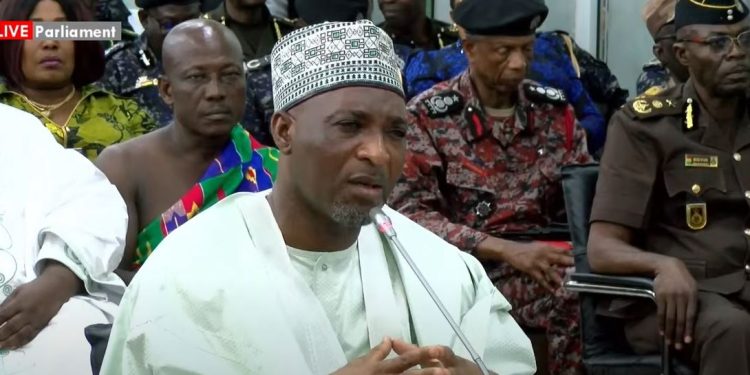adverts
The Minister-Designate for the Interior, Mohammed Muntaka Mubarak, has expressed grave concern over the deplorable conditions in Ghana’s prisons, particularly the meagre daily feeding budget allocated for inmates.
Speaking during his vetting before the Parliamentary Appointments Committee on Friday, January 24, Muntaka pledged to prioritise prison reforms if his nomination is confirmed.
The Asawase Member of Parliament revealed that inmates are fed on a daily budget of GH¢1.80 (approximately $0.15), describing it as inhumane and inadequate to provide proper nutrition.
adverts
He criticised the low budget, likening it unfavourably to the care extended to pets in most households.
“I was shocked when I heard that the rationing for feeding a prisoner in Ghana is GH¢1.80 for the whole day,” Muntaka said. “With the greatest of respect, even the cats and dogs in our houses receive better care. It’s unacceptable to treat our own compatriots this way, expecting them to be healthy while living under such conditions.”
Muntaka highlighted the health implications of poor nutrition in prisons, especially in overcrowded facilities that are already breeding grounds for communicable diseases such as tuberculosis, scabies, and other illnesses.
He assured the committee that increasing the feeding budget would be one of his top priorities.
“Prisoners are still human beings,” he stressed. “If we are serious about rehabilitation and correction, we must treat them with dignity, ensuring they receive proper nutrition and healthcare.”
In addition to the feeding budget, Muntaka pointed to overcrowding as a significant challenge. Many of Ghana’s prisons operate well beyond their intended capacity, exacerbating the spread of diseases and creating harsh living conditions.
The Ghana Prisons Service has repeatedly appealed to the government for intervention, calling for increased funding, better infrastructure, and comprehensive reforms to address systemic issues.
Muntaka’s remarks have sparked discussions on the urgent need for prison reform in Ghana. Advocates have long argued that addressing issues such as overcrowding, insufficient nutrition, and unsanitary conditions is critical to ensuring the humane treatment of inmates and creating an environment conducive to rehabilitation.


